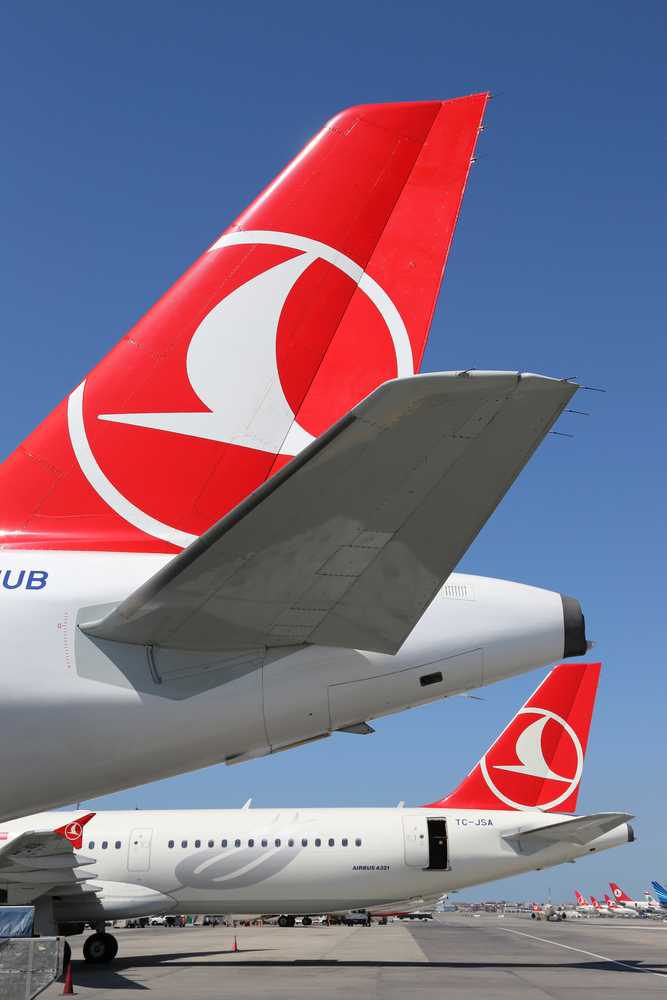[ad_1]
RIYADH: The decision by the French Ministry of Foreign Affairs to place the West African nations that underwent coup d’etats under a “red alert,” a move initially aimed at ensuring the safety of the European country’s nationals, has taken an unexpected turn, adversely affecting aviation companies operating in the region.
This suspension is particularly painful for Air France, as flights between Paris and Bamako, Mali’s capital, represent its third busiest route in sub-Saharan Africa, following only Abidjan and Dakar. The abrupt halt of these services not only deals a blow to Air France but also opens up opportunities for competitors.
This crisis marks a turning point in the operator’s relations with Africa, impacting a substantial 14 percent of its revenue. This underscores the broader issues facing airlines operating in regions with political volatility and highlights the need for a delicate balance between safety and business interests in the aviation industry.
Africa has experienced seven coups since August 2020, with the most recent military power grab occurring in Gabon, preceded by Niger, Burkina Faso, Guinea, Sudan and Mali. However, France’s diplomatic standoff with the military juntas of the region has not played in its favor.
President Emmanuel Macron has just disengaged from Niger, recalling its ambassador and vowing to withdraw its troops by the end of the year, marking a significant shift in France’s approach to the West African Sahel region.
Air France celebrated the 80th anniversary of the Bamako-Paris route in 2017, affirming its commitment to the region, even in the face of conflicts and security challenges. While interruptions did occur during the COVID-19 pandemic, sub-Saharan Africa remained a resilient region for the company, representing nearly 18 percent of its network revenue in 2021.
However, this figure dropped to 14 percent in 2022 as other destinations, particularly in Asia, began to recover. The current crisis, therefore, has both immediate and long-term implications for Air France’s presence in Africa and its overall revenue picture.
The consequences of the suspension extend beyond the airline itself, affecting diplomatic relations and offering competitors new opportunities. As the company navigates the complexities of resuming operations, it faces not only a logistical challenge but also the task of rebuilding trust with local authorities and passengers in these African nations.

“These West African countries are redefining their ties with France, and it didn’t make business sense to blacklist them even though France’s security concerns are understandable,” Ovigwe Eguegu, a Nigerian policy analyst, told Arab News.
“The possibility of Air France losing market share to Turkish Airlines is real because beyond aviation, Türkiye is working to deepen its footprint in the region and France may just have handed Ankara another opportunity,” he added.
This underscores the competitive landscape of the aviation industry, where swift decisions can lead to a reshuffling of market dynamics. Turkish Airlines, along with other ambitious carriers, now sees a chance to expand their foothold in Africa at Air France’s expense.
With regards to the number of seats, the situation was similar for both Niger and Burkina Faso, with both destinations having 4,000 seats each in August 2022. The abrupt cessation of services by Air France, starting from July 27 for Niamey and Aug. 7 for Ouagadougou, has resulted in the collective loss of several thousand seats, amounting to an estimated $3.2 million in lost revenue, according to Arab News calculations.
In August 2022, there were over 10,000 available seats for flights between Paris and Bamako, making it the third-largest destination in sub-Saharan Africa by capacity, according to aviation data provider OAG. However, in the following year, this number dropped significantly to less than 5,000 seats.

Experts say that the Turkish carrier, known for its ambitious global expansion strategy, is well-positioned to capitalize on Air France’s absence. However, it is not the only player in the game. “African carriers, including Air Sénégal, which boasts an A330 fleet, and Corsair, which has continued its flights to Bamako despite French Ministry of Foreign Affairs’ recommendations, are also in the mix,” Alain Kazadi, a Congolese aviation expert, told Arab News.
“Corsair, in particular, has demonstrated resilience, continuing its services even during challenging times. It plans to operate more flights, further cementing its presence in the African market,” Kazadi added.
The situation also sheds light on the complexities of aviation agreements and the sovereignty of nations over their airspace. “Each state holds the authority to grant or deny permission to airlines, and these decisions can have significant ramifications for carriers,” Kazadi stated, emphasizing that, while bilateral agreements are common in aviation, they can be subject to change at any time.
“In the aviation domain, bilateralism is favored, but agreements are often confidential and can be questioned at any time,” Ovigwe said, commenting on the fact that the Malian Civil Aviation Agency has even gone as far as canceling Air France’s flight operating authorization.
Air France, on its part, has been attempting to downplay the situation, stating that they will need to submit a new authorization request when they resume flights, which they claim is a standard procedure.
Africa holds the distinction of being the continent with the lowest number of air passengers annually, accounting for approximately just 2 percent of global air traffic, encompassing both passenger and cargo transport. The primary driver of air travel within Africa has traditionally been international tourism.
However, the continent’s rapid population and income growth has long offered the promise of new opportunities in this sector, making it increasingly important to delve deeper into the African aviation market. One of the most significant hurdles faced by airlines operating in Africa has been the exorbitant cost of doing business, which far exceeds that of other regions.
In the year 2021, jet fuel and oil expenditures constituted approximately 31.2 percent of the overall costs for African carriers. While soaring global oil prices have affected the entire industry, jet fuel remains 12 percent more expensive in Africa compared to other regions.
Between 2010 and 2019, the premium stood at 18 percent, skyrocketing to approximately 40 percent by 2022. The infrastructural and logistical challenges unique to Africa have led to its carriers shouldering an exceptionally high premium in the global aviation industry.
[ad_2]
Source link
